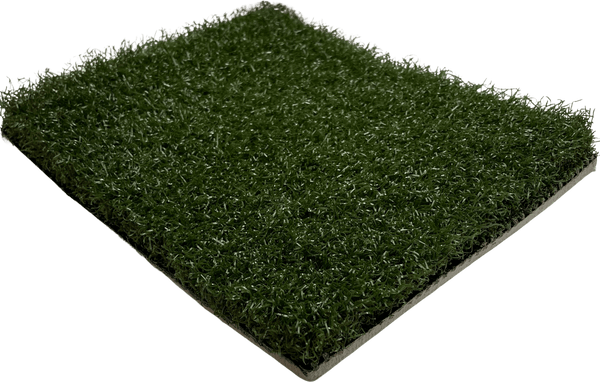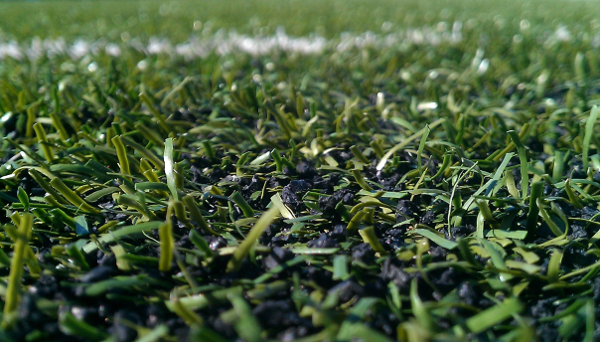Top-Rated Phoenix Turf Companies Focusing on Synthetic Grass Options
Top-Rated Phoenix Turf Companies Focusing on Synthetic Grass Options
Blog Article
Delve Into the Environmental Advantages of Opting for Synthetic Grass Solutions
The adoption of synthetic grass options provides a compelling opportunity to address pressing environmental obstacles. By significantly reducing water use and decreasing the application of harmful chemicals, these choices not only promote lasting landscape design but likewise safeguard local environments. The lower carbon impact connected with decreased upkeep activities adds to a much more sustainable strategy to land administration. The implications of these advantages extend beyond plain conservation initiatives, raising inquiries regarding their long-term effect on environment preservation and general ecological equilibrium. Exploring these dimensions discloses a complicated interaction worth thinking about.
Water Preservation Benefits
One of the most substantial benefits of synthetic turf is its ability to preserve water. In contrast, artificial lawn does not require watering, significantly lowering the overall demand for water sources.
By eliminating the requirement for regular watering, synthetic grass adds to lasting landscape techniques and helps minimize the environmental impact of extreme water intake. Furthermore, the preservation of water reaches the reduction of overflow, which can bring about dirt erosion and waterway contamination.
Furthermore, the installment of synthetic grass allows communities and home owners to designate water sources extra successfully, concentrating on essential uses such as drinking water and farming. The shift towards synthetic grass not only promotes responsible water use yet additionally aligns with wider environmental goals aimed at protecting natural deposits.
As neighborhoods progressively prioritize sustainability, the water conservation advantages of synthetic grass provide a compelling case for its fostering in household and business landscaping tasks.
Minimized Chemical Usage
The transition to synthetic grass substantially reduces the reliance on chemical therapies frequently used in all-natural yard upkeep. Standard grass management commonly includes the application of chemicals, herbicides, and fertilizers to advertise growth and control parasites. These chemicals can position threats to human health and wellness, local wild animals, and the atmosphere, contributing to soil and water contamination.
In comparison, fabricated lawn eliminates the requirement for these harmful compounds. By lessening the launch of artificial substances right into the ecosystem, synthetic grass advertises much healthier dirt and water systems.
In addition, the lack of chemical drainage connected with fabricated turf installations helps safeguard regional waterways from contamination, supporting water life and preserving biodiversity. Phoenix turf companies. As areas significantly focus on sustainable practices, selecting synthetic grass offers a feasible service that lines up with environmental conservation objectives. Via this change, residential or commercial property owners can delight in lush environment-friendly rooms without endangering environmental health, leading the way for a much more sustainable future
Reduced Carbon Impact

In addition, the setup of fabricated grass can cause substantial water conservation. All-natural grass require substantial quantities of water for irrigation, which not only includes to the carbon impact connected with water removal and therapy but likewise pressures local water resources. On the other hand, synthetic grass needs very little upkeep, requiring no watering, thus dramatically minimizing water use and its linked power prices.
Additionally, the longevity of synthetic grass contributes to its decreased carbon effect. With a life-span of approximately 15 years or even more, the demand for constant substitutes is diminished, resulting in less waste and lower energy consumption in production and throwing away typical yard choices. On the whole, synthetic grass provides a sustainable option for environmentally conscious landscape design.
Environment Conservation
Habitat preservation is a vital consideration in the argument over landscaping selections, especially when comparing synthetic grass to all-natural yard. All-natural turf lawns frequently require extensive upkeep, consisting of the use of fertilizers, herbicides, my sources and chemicals, which can negatively influence regional communities. These chemicals can leach right into the soil and rivers, hurting native vegetation and fauna and disrupting neighborhood habitats.
In comparison, fabricated grass presents an opportunity to decrease the ecological footprint of landscape design. By choosing artificial lawn, house owners can minimize the disturbance of all-natural habitats connected with typical yard treatment practices. Fabricated turf gets rid of the need for hazardous chemicals, thereby protecting close-by wildlife and preserving the honesty of surrounding ecological communities. Additionally, the installment of synthetic grass can bring about the conversion of former turf locations into more biodiverse landscapes, such as pollinator gardens or indigenous plant locations, which can support regional wild animals.
Eventually, the transition to synthetic grass not only conserves water and reduces maintenance efforts but also fosters an extra unified relationship between human tasks and the native environment, promoting environment conservation while doing so.
Long-Term Sustainability
Long-term sustainability is an important consider evaluating the benefits of fabricated lawn over conventional grass yards. One of the most substantial benefits of artificial lawn is its toughness; it can last up to 15-20 years with marginal maintenance, whereas all-natural lawn requires constant reseeding and replacement. This long life decreases the demand for continuous sources, such as water, plant foods, and pesticides, which are essential for preserving a healthy turf lawn.
Additionally, my blog man-made grass adds to a reduction in carbon exhausts connected with lawn care tools. Conventional grass usually need gas-powered lawn mowers, trimmers, and blowers, all of which add to air contamination. Arizona artificial turf. In contrast, synthetic grass gets rid of the need for such devices, promoting a cleaner setting
Additionally, the manufacturing of synthetic grass increasingly makes use of recycled products, enhancing its sustainability profile. As producers embrace eco-friendly methods, the ecological footprint of artificial turf continues to decrease.

Conclusion
The fostering of artificial turf remedies presents considerable ecological benefits, consisting of considerable water preservation, lowered dependence on hazardous chemicals, and a reduced carbon impact. Fabricated turf aids in preserving all-natural habitats by lessening land disturbance and promoting lasting sustainability through the usage of durable materials. Jointly, these elements underscore the more info here capacity of fabricated turf to contribute favorably to ecological wellness and use a sensible option to standard landscaping practices in a significantly resource-conscious world.
In contrast, fabricated lawn does not require watering, substantially decreasing the general demand for water resources. By lessening the release of synthetic substances into the environment, man-made lawn advertises healthier dirt and water systems.
Moreover, the installment of man-made turf can result in substantial water conservation. In contrast, man-made lawn needs marginal upkeep, calling for no watering, consequently substantially reducing water usage and its linked power costs.

Report this page